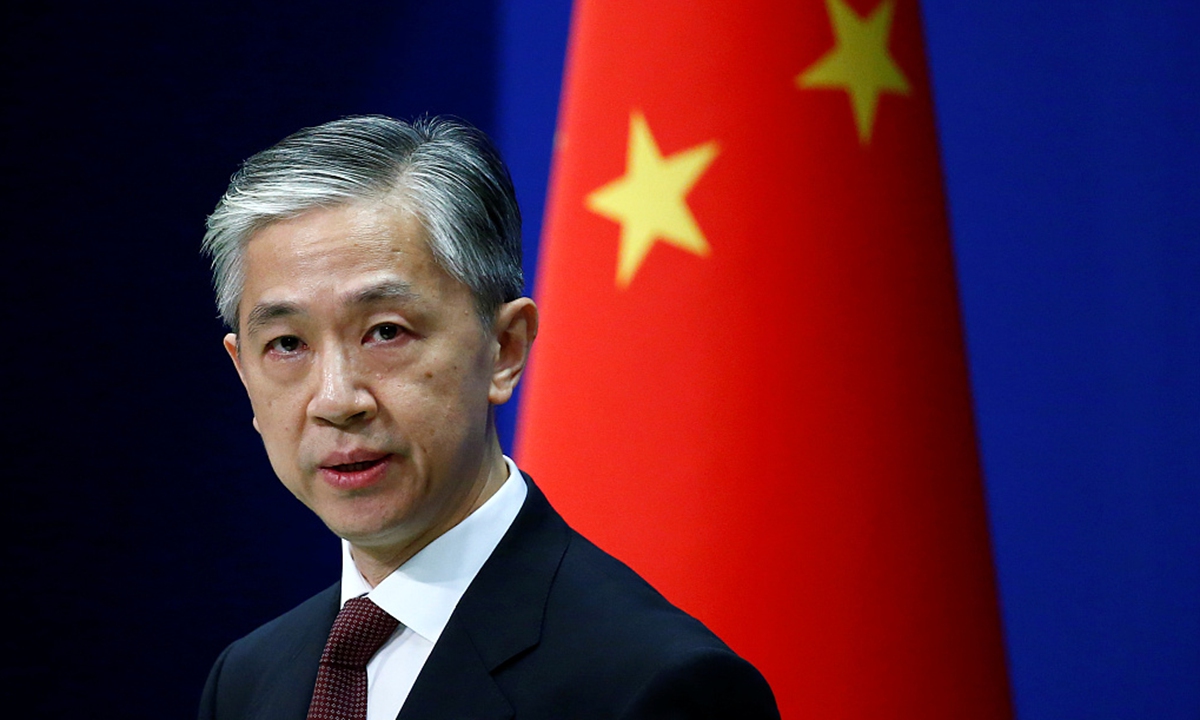
Chinese Foreign Ministry spokesperson Wang Wenbin. Photo: VCG
The Chinese Foreign Ministry on Tuesday requested the US to stop offering a reward of $5 million for the arrest of a Chinese national described by the US as a transnational drug trafficker, as such a move undermines the foundation of bilateral anti-drug cooperation and obstructs future collaboration.
Surnamed Zhang, the Chinese national was suspected of participating in transnational drug trafficking as a leader between 2013 and 2016, which led to the overdose deaths of four Americans, the US Department of State said in a statement on Monday, noting that Zhang was charged in 2018 in the US for drug trafficking and international money laundering, among other charges.
China and the US have been jointly investigating the case since 2016. China has done a lot of work based on the limited clues provided by the US and shared information with the US, Wang Wenbin, a spokesperson of Chinese Foreign Ministry, said on Tuesday.
After a joint investigation, it was found that the chemicals involved in the case were not regulated substances in China at that time and belonged to ordinary chemicals, Wang said, stressing that China has "repeatedly asked the US to provide evidence of Zhang's violation of Chinese laws, but the US has yet to make it."
Describing Zhang as a "fentanyl trafficker," the US State Department only uses "controlled substances and their analogues" to described the drug involved.
Facts and evidence must be given priority in determining transnational drug traffickers. Putting a reward on the arrest of the Chinese citizen when the US was fully aware that the bounty would be difficult to achieve will seriously undermine the foundation of China-US anti-drug cooperation, and the US should bear the consequences, Wang said.
China urged the US to respect the truth, immediately revoke the public offering of the reward for information on the Chinese national, and stop smearing and attacking China, Wang noted.
Counterdrug cooperation should be mutual and based on fully respecting China's sovereignty and judicial sovereignty. The way the US handles it will only bring fresh disputes for the two countries, experts noted.
"It is a disappointment and a danger sign to see the US pushing the China-US anti-drug cooperation into the track of confrontation," Li Haidong, a professor at the Institute of International Relations of the China Foreign Affairs University, told the Global Times.
Similar to China-US cooperation in other fields including epidemic, climate change and economic development, when China is always thinking of methods to control divergence between the two countries, we could see the US has done things to shrink bilateral cooperation space and amplify the competitive tone of the two countries, which is not positive for China-US ties, Li noted.
Wang said China attaches great importance to its anti-drug cooperation with the US, especially the crisis over the opioid abuse crisis in the US.
China chose to take a humanitarian stand and took the lead in listing all fentanyl-related analogs under controlled drugs in May 2019 to assist the US to cope with fentanyl abuse, despite fentanyl trafficking not being a prominent issue in China, Wang added.
The US has suffered the most from the fentanyl drug abuse. Instead of focusing on its domestic drug abuse problem, Washington has accused China of being the primary source of the problem, media reported.

